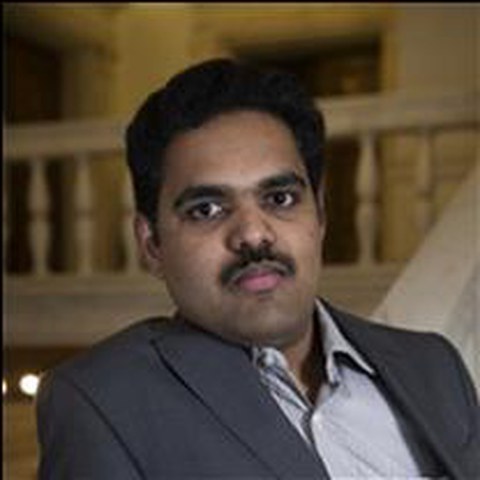Rahul Raveendran Nair
Title: Microfiltration to seawater desalination using two-dimensional materials-based membrane
First and last name: Rahul Raveendran Nair
Affiliation: National Graphene Institute, The University of Manchester
Short Biography:
Rahul R. Nair is a Carlsberg/Royal Academy of Engineering Research Chair and Professor of Materials Physics at the National Graphene Institute (NGI), and the Department of Chemical Engineering at the University of Manchester. His current research focuses on molecular transport through sub-nanometer two-dimensional (2D) capillaries and developing 2D materials-based membranes for sustainable separation technologies. He has published over 60 highly cited peer-reviewed research articles, including several in Science, Nature, and more than a dozen in the Nature series publications during the last twelve years. He has also received several prestigious awards, such as the Moseley Medal and Prize, ERC grant, the Philip Leverhulme Prize, Prince Sultan Bin Abdulaziz International Prize for Water, etc., for his innovative and groundbreaking research. He also has research partnerships with leading industries such as Carlsberg, the US Army, AstraZeneca, ICON Life Saver, etc.
Abstract: Permeation through nanometre-pore materials has been attracting unwavering interest due to fundamental differences in governing mechanisms at macroscopic and molecular scales, the importance of water permeation in living systems, and relevance for filtration and separation techniques. The latest advances in the fabrication of artificial channels and membranes using two-dimensional (2D) materials have enabled the prospect of understanding the nanoscale and sub-nm scale permeation behaviour of water and ions extensively. In particular, several laminate membranes of 2D materials show unique permeation properties, such as ultrafast permeation of water and molecular sieving. In my talk, I will discuss the applications of these membranes in water filtration, ranging from ultrafiltration to reverse osmosis seawater desalination. I will also discuss the prospect of developing next-generation intelligent membranes based on 2D materials for water filtration applications.

